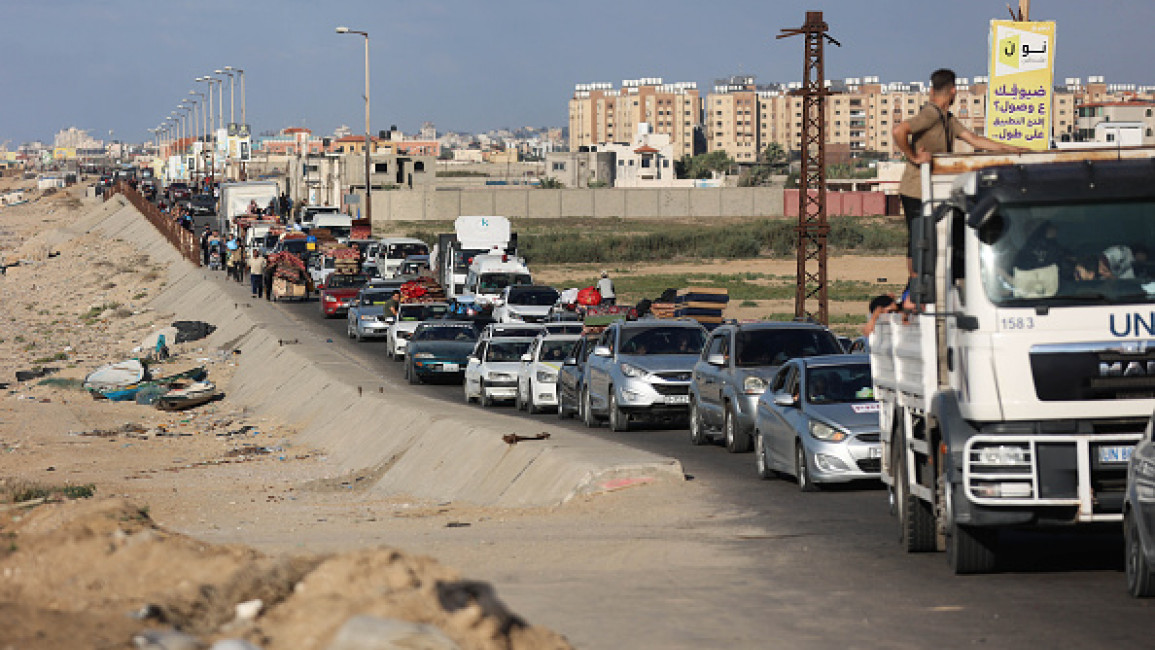Award-winning Palestinian poet Mosab Abu Toha released following detention by Israeli forces
Renowned Gaza-based Palestinian poet and author Mosab Abu Toha has been released after he was disappeared at the hands of Israeli forces, the PEN International NGO and the New Yorker confirmed on Tuesday.
The celebrated essayist was detained for unknown reasons by the Israeli military, and was reportedly questioned at an undisclosed location outside of Gaza, in southern Israel.
Two Israeli military officials said he will be back in the war-torn Gaza Strip by the end of the day, a staff member at the New Yorker confirmed.
Palestinian-Canadian lawyer Diana Buttu said that Abu Toha was beaten by Israeli soldiers, but has since received medical treatment and is now reunited with his wife and children.
PEN International is relieved to hear that #Gaza poet Mosab Abu Toha has been released from detention and reunited with his family. More details to follow. https://t.co/g2EPqmgf6D
— PEN International (@pen_int) November 21, 2023
She also stressed that he was not arrested - but kidnapped - as he was travelling through "safe passage" from north to south Gaza, amid ongoing forced evacuations in the aftermath of Israel’s ferocious bombardment of the south of the territory.
On Monday, Abu Toha's brother Hamza said the poet was detained as he reached an Israeli checkpoint in southern Gaza in a Facebook post.
"His wife and children entered the south [of Gaza] and arrested my brother. We [don’t know] anything about him. It is worth noting that the US embassy had sent him and his family to travel through the Rafah crossing," the brother wrote.
Abu Toha, an award-winning poet, recently published a series of essays describing life under Israeli bombardment.
Israeli strikes on Gaza have taken place since 7 October following a more than 15-year blockade on the Palestinian territory.
Israel's six-week onslaught has killed at least 13,300 Palestinians, including 5,600 children targeting schools, refugee camps, hospitals, and refugee camps.
Around 45 percent of the territory’s housing units have been partially or completely destroyed, while Israel has demanded that Palestinians in the north evacuate to southern Gaza, displacing over a million people and sparking fears of a second Nakba.
In an essay published in The New Yorker on 20 October, Abu Toha wrote about his experiences being evacuating from Beit Lahia to the Jabalia refugee camp and his return home. He wrote of the "shocking scenes" he witnessed, caused by Israeli shelling and bombing.
In a Facebook post six days ago, Abu Toha said: "We don't have access to food or clean water. Winter is coming and we don't have enough clothes. Kids are suffering, we are suffering."
"Who can stop this? Please stop it now," he further expressed.
Update on Mosab Abu Toha: he was kidnapped - not arrested - as he was traveling along the so-called “safe passage” to get to the south. Israel has bombed all parts of Gaza - not just the north. He was kidnapped along with hundreds of others - men and women - according to his…
— Diana Buttu (@dianabuttu) November 21, 2023
PEN International, an NGO devoted to freedom of expression, stressed it was "deeply concerned about Abu Toha's arrest, and demanded to know his whereabouts and the reasons for his detention", in a statement on X.
Fellow writers and activists have also expressed concern about Abu Toha's detention, urging foreign governments to pressure Israel to secure the writer's release.
Last year, Abu Toha published a collection of poems titled 'Things You May Find Hidden in My Ear', describing life under Israeli blockade.
The Gazan writer is also the founder of the territory’s first-ever English-language library, named after Palestinian writer and academic Edward Said, as well as the winner of the Palestine Book award and the American Book award.


![President Pezeshkian has denounced Israel's attacks on Lebanon [Getty]](/sites/default/files/styles/image_684x385/public/2173482924.jpeg?h=a5f2f23a&itok=q3evVtko)



 Follow the Middle East's top stories in English at The New Arab on Google News
Follow the Middle East's top stories in English at The New Arab on Google News


